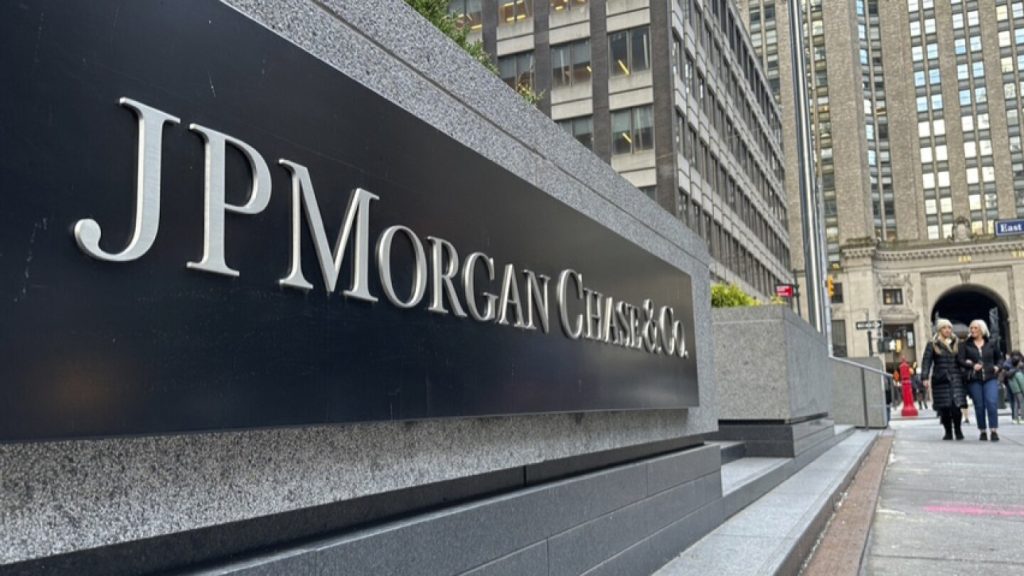JPMorgan Chase recently reported a 2% decrease in net income for the third quarter, totaling $12.9 billion. Despite this decline, the earnings per share rose to $4.37 due to a reduction in outstanding shares. The bank set aside $3.1 billion to cover credit losses, as consumers’ credit card debt increased. However, the Chief Financial Officer reassured analysts that consumers are on solid footing. Net interest income also saw a 3% increase to $23.5 billion, surpassing estimates. JPMorgan raised its forecast for net interest income for the year, but anticipates a decline as the Federal Reserve continues to cut interest rates.
JPMorgan’s shares rose by 4.6% in morning trading, and other major banks like Wells Fargo also saw an increase in profits. Wells Fargo reported third-quarter profits of $1.42 per share, beating analysts’ expectations. The bank, once known for being the largest home mortgage lender, has shifted its focus to generating more income through fees. Despite a decline in net interest income, fee income offset the losses. The Biden Administration recently lifted a consent order on the bank that had been in place since 2016 after a series of scandals. Wells Fargo last month agreed to work with U.S. regulators to improve its financial crimes risk management controls.
On the regulatory front, TD Bank recently reached a historic $3 billion settlement with U.S. authorities for lax practices that allowed money laundering. TD Bank pleaded guilty to conspiracy to commit money laundering, marking the largest settlement of this kind in U.S. history. Bank of America is set to report its latest financial results, with Berkshire Hathaway selling off millions of its shares in the bank. Warren Buffett’s investment firm has sold around 125 million Bank of America shares since July, with a recent sale of 9.5 million shares netting around $380 million. Despite these actions, Bank of America’s shares have continued to rise, following the same trend as other major banks in the industry.
JPMorgan CEO Jamie Dimon continues to monitor geopolitical tensions, referring to them as “treacherous and getting worse.” Dimon’s comments often have a ripple effect in Washington and Corporate America, as he is seen as a trusted advisor on economic and global issues. Despite potential conflicts, Dimon expressed doubt about the possibility of serving in a Cabinet position if asked by the next administration. With concerns about global risks, JPMorgan and other major banks are navigating challenges while striving to maintain profitability amid changing interest rates and economic conditions. Analysts will be closely monitoring these banks in the coming quarters to assess the impact of ongoing economic factors on their financial performance.


